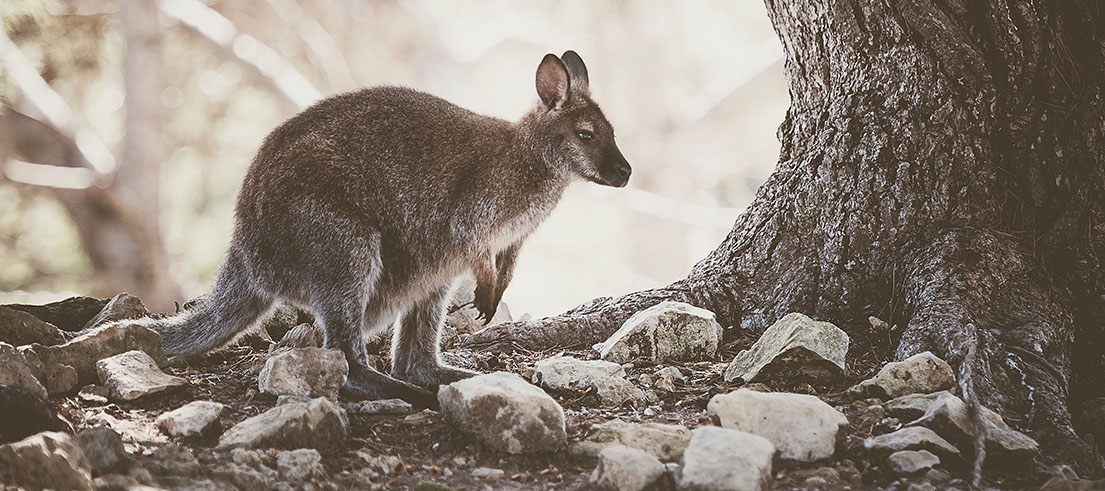
Have your say on wallaby control
The Enhancing wallaby control in Canterbury survey is aimed at people who own or lease land over 20 hectares, where wallabies are an issue. The information provided in the survey could help shape future wallaby control strategies.
Through the survey, we want to find out more about:
- Current practices: how you are controlling wallabies on your land.
- Challenges: what control measures work and what barriers do you face?
- Strategy: your level of support for the regional and national wallaby control strategy, and any opportunities for improvement.
A nationwide effort
We are part of a national programme working to contain wallabies within the Rangitata, Waitaki and Takapō/Tekapo rivers in South Canterbury. Once containment is achieved, the aim is to continue to reduce their range and work toward an aspirational goal of eradication.
Staff respond to sightings outside of containment so they can find and destroy them, and do intensive control work in the buffer area around containment to further reduce wallaby spread.
Landholders are key
Landholders are the most important part of the system; they are responsible for maintaining low wallaby numbers on their properties. It has been that way since 1992 when they voted to disband the South Canterbury Wallaby Board and opt for user pays control. It seemed like a good idea at the time as wallaby numbers were extremely low due to the success of the wallaby board. Unfortunately, it led to wallaby numbers and their range increasing, spilling into Otago and other parts of Canterbury.
Survey time
According to wallaby team lead Brent Glentworth, the nationally funded programme is achieving results and the number of wallabies reported outside of containment are reducing.
“This is great news, but it’s time to check-in with landholders to make sure there’s nothing we could be doing better, and that no barriers exist to farmer-led control as it’s such a critical part of the solution.”
Collaboration will be key if we want to effectively manage wallabies according to Glentworth, “No one person, agency or group is going to win this battle alone – it requires us to all work together.”
If you own land greater than 20 hectares in an area where wallabies are a problem we want to hear from you. Take the wallaby control survey now.
